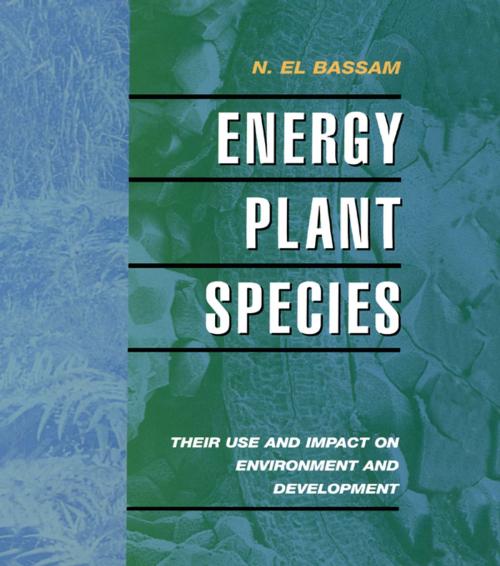Energy Plant Species
Their Use and Impact on Environment and Development
Nonfiction, Science & Nature, Technology, Agriculture & Animal Husbandry| Author: | ISBN: | 9781134255733 | |
| Publisher: | Taylor and Francis | Publication: | October 31, 2013 |
| Imprint: | Routledge | Language: | English |
| Author: | |
| ISBN: | 9781134255733 |
| Publisher: | Taylor and Francis |
| Publication: | October 31, 2013 |
| Imprint: | Routledge |
| Language: | English |
Biomass currently accounts for about 15 per cent of the global primary energy consumption and is particularly important as an energy resource in developing countries. It will undoubtedly play an increasing role in the world's energy consumption. Which crops make up this large percentage of our energy resources? Where do they grow and what can be done to boost the levels of production? What impact does their cultivation have on the environment and development? The book starts with aspects of biomass accumulation, harvesting, transportation and storage, as well as conversion technologies for biofuels. This is followed by a look at the environmental impact and economic and social dimensions, including prospects for renewable energy. The book then goes on to cover all the main potential energy crops. For each main species it gives a brief description, outlines the ecological requirements, methods of propagation, crop management, rotation and production, harvesting, handling and storage, processing and utilization, then finishes with selected references. All those whose work involves biomass production, whether as agriculturalist, student, farmer, producer, planner or policy maker will find this book an invaluable reference work.
Biomass currently accounts for about 15 per cent of the global primary energy consumption and is particularly important as an energy resource in developing countries. It will undoubtedly play an increasing role in the world's energy consumption. Which crops make up this large percentage of our energy resources? Where do they grow and what can be done to boost the levels of production? What impact does their cultivation have on the environment and development? The book starts with aspects of biomass accumulation, harvesting, transportation and storage, as well as conversion technologies for biofuels. This is followed by a look at the environmental impact and economic and social dimensions, including prospects for renewable energy. The book then goes on to cover all the main potential energy crops. For each main species it gives a brief description, outlines the ecological requirements, methods of propagation, crop management, rotation and production, harvesting, handling and storage, processing and utilization, then finishes with selected references. All those whose work involves biomass production, whether as agriculturalist, student, farmer, producer, planner or policy maker will find this book an invaluable reference work.















